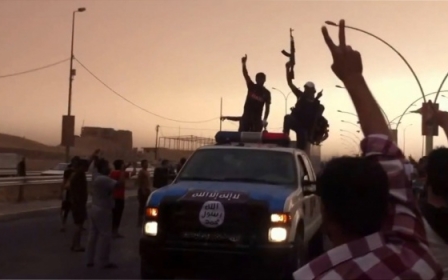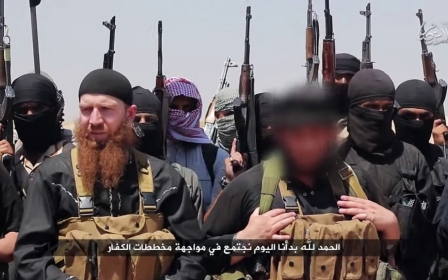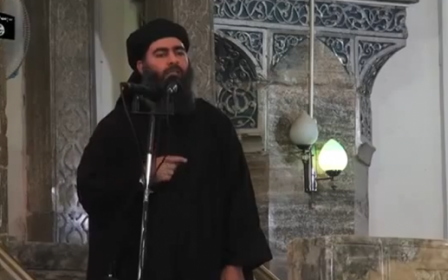Iraq parliament elects speaker, security forces advance into Tikrit

Iraq's fractious parliament elected a speaker on Tuesday, allowing for the government formation process to move forward after many delays, as security forces advanced into militant-held Tikrit.
World powers and Iraq's top Shiite cleric, Grand Ayatollah Ali al-Sistani, had piled pressure on MPs to put aside their differences and counter a major extremist-led onslaught that has overrun swathes of territory north and west of Baghdad.
After two sessions in which they made no progress, MPs elected Salim al-Juburi to parliament speaker, as it is a post traditionally held by a Sunni Arab that must be filled before the process of forming a government can proceed.
Acting speaker Mahdi Hafez announced that Juburi, an MP from Diyala who ran on an independent list, won 194 of 273 votes cast.
It was not immediately clear if his election was part of a package deal involving the two outstanding senior posts of president and prime minister, but Tuesday's progress after previous deadlocked sessions indicates that some type of accord has been reached.
Lawmakers must now elect a president, who will then give the biggest bloc the first chance to form a government.
The speaker presides over an institution that has consistently failed to fulfil its duties and whose powers are dwarfed by those of the prime minister.
The UN's Iraq envoy, Nickolay Mladenov, has warned lawmakers that "failing to move forward on electing a new speaker, a new president and a new government risks plunging the country into chaos".
Former premier Ibrahim al-Jaafari, speaking ahead of Tuesday's session, said: "If we can't agree within those 48 hours, we still won't agree in 48 days."
Security forces advance on Tikrit
Earlier on Tuesday, security forces began an attack on Tikrit, aiming to revitalise an operation to retake it that began more than two weeks ago but became bogged down south of the city.
"Iraqi forces began a military operation to liberate the city of Tikrit and our forces were able to control the southern part of the city," Ahmed Abdullah Juburi, the governor of Salaheddin province, of which Tikrit is the capital, told AFP.
An army colonel said the police academy and a hospital had been retaken, and Juburi confirmed those facilities were back in government hands, along with the governorate headquarters.
Tikrit was seized by militants on 11 June as part of a sweeping offensive that has overrun large areas of five provinces since it began last month.
Violence also struck south of Baghdad on Tuesday, with bombings in the Madain area killing nine people, including four soldiers, officials said.
The blasts and the new push for Tikrit came a day after the Pentagon said that American military teams sent to Iraq last month have completed their assessment of Iraqi security forces.
The details were not released, but The New York Times said one conclusion was that only roughly half of Iraq's units are capable enough to be advised by US personnel, if the decision is taken to do so.
Divisions over key issues
Though parliament has finally made progress, deep divisions remain over key appointments and other issues.
Ties between the Baghdad government and Iraq's autonomous Kurdish region have hit a new low, and Prime Minister Nuri al-Maliki has pledged to seek a third term despite some lawmakers insisting he step aside.
The Kurdish region's government has laid claim to disputed northern oilfields, having earlier taken control of other contested areas abandoned by Iraqi forces last month as they fled the sweeping offensive led by the Islamic State group.
Kurdish regional president Massud Barzani has also called for a vote on outright independence.
Maliki has accused the Kurds of exploiting the extremist offensive and harbouring militants, while the Kurds say Baghdad is unfairly withholding their share of oil revenues and have called for him to step down.
Maliki, a Shiite Arab viewed by opponents as a divisive and sectarian leader, has no plans to do so, despite eroding political support and thinly veiled calls for change from Washington.
New MEE newsletter: Jerusalem Dispatch
Sign up to get the latest insights and analysis on Israel-Palestine, alongside Turkey Unpacked and other MEE newsletters
Middle East Eye delivers independent and unrivalled coverage and analysis of the Middle East, North Africa and beyond. To learn more about republishing this content and the associated fees, please fill out this form. More about MEE can be found here.




